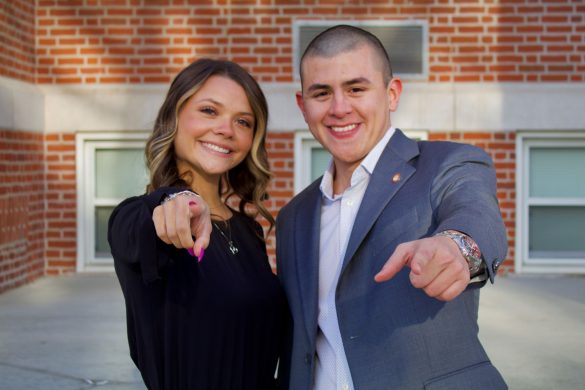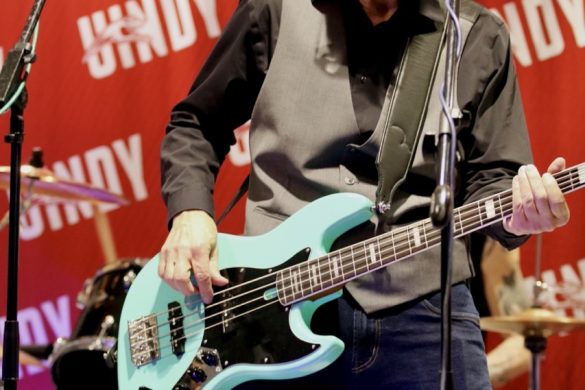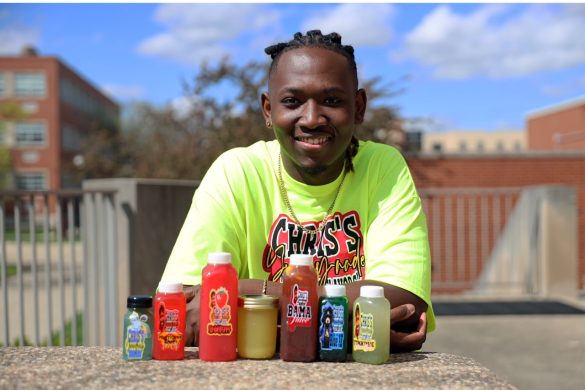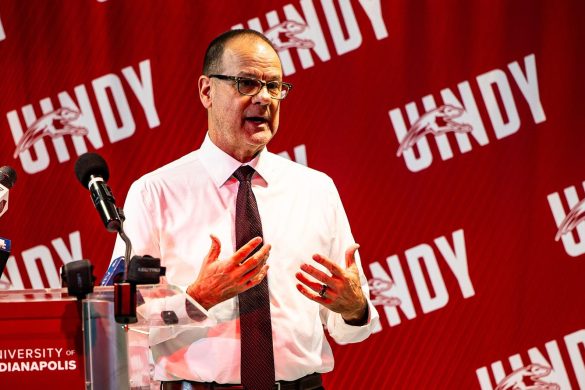In the past five weeks, what would be considered a normal semester for students, faculty and staff at the University of Indianapolis has been completely upended by the COVID-19 coronavirus pandemic.
On Feb. 29, the university announced the formation of a Coronavirus task force and stopped supporting travel to high-risk areas as the outbreak escalated. On March 5, the university suspended all university-sponsored international travel through at least May 31, including all spring break and spring term travel courses and service trips, along with any pending individual study-abroad programs.
On March 11, UIndy extended spring break by an extra week and suspended in-person classes. Two days later, on March 13, UIndy suspended all campus events until it is deemed safe, with the exception of graduation. On March 18, the university’s commencement ceremonies were postponed. On March 23, online classes began for students.
UIndy is in an unimaginable situation
University President Robert Manuel said that he could not have imagined that UIndy would have ever been put in a situation like the one the university is now facing with COVID-19. Manuel was at New York University in Manhattan when the Twin Towers of the World Trade Center fell during the Sept. 11, 2001 terror attacks. At that time there was a complete stoppage of his ability to do work or to connect with anyone. The magnitude and suddenness of 9/11 was very different compared to the warning in advance of COVID-19 the university had, he said.
“The length of time that it’s gonna take for us to reconnect and figure out how to move through what is a long-tailed exposure to COVID-19 is fundamentally different than anything I’ve seen in 30 years of higher education,” Manuel said. “I can’t, even having read and being a student of history, I can’t see anything in history that compares to where we are at this moment in time.”
2,000 courses moved to online or alternative methods
Before classes resumed on March 23, UIndy had to transition all of its in-person courses to online and alternative formats. The university was able to put 2,000 courses into an alternate delivery within three to four days, according to Manuel.
“The work required to do that was herculean,” Manuel said. “When you think about the fact that some courses aren’t necessarily traditionally made for distance delivery, it’s even more remarkable.”
UIndy was able to accommodate courses that have very distinct needs to alternative formats, including its lab science, art courses, music, clinical and student teaching courses, Manuel said. He said that he was in awe of the work, creativity and integrity that faculty and staff have shown during the transition.
“I sit in my office right now just incredibly impressed and proud to be part of an organization that can do what we did over the last few days,” Manuel said.
UIndy moving everything it can to alternative methods
UIndy is attempting to move everything it can to an alternative method of connection, including phone calls for those who do not have technology or internet access, Manuel said. The university’s approach to the situation caused by COVID-19 was to try to balance how to keep the university running while maintaining safety for the community and the students that live at UIndy, along with faculty and staff and others who rely on the university’s services.
“We had to maintain a balancing act between keeping things open for them [the UIndy community] because they rely on them [the services] to live,” Manuel said.
Closing UIndy’s campus was never conceivable with that approach, Manuel said. There are international students who may not be able to go home, along with domestic students who use UIndy’s residence halls as their permanent residence because they do not have permanent homes. Some community members rely on UIndy’s food or rely on other support structures to be able to have healthy, engaged lives, he said.
“So some things are still open, but you’ll notice that we’re closing all of the areas where we can’t socially distance or … closing almost everything where we would be violating the CDC or the state department of health recommendations or the governor’s mandates,” Manuel said.
Campus services continue virtually
On the administrative side of the university, there is a lot of ingenuity being shown by administrators as they figure out how to continue to provide services for students, Manuel said. Vice President for Student and Campus Affairs and Dean of Students Kory Vitangeli said that the Office of Student Affairs is trying to continue as many of their services, programs and services online as they can.
Intramurals are working on having virtual exercise classes, while the Office of Ecumenical and Interfaith Programs has been having a daily, morning devotional service from the chapel online, Vitangeli said. The devotionals are broadcast live at 8:50 a.m. on McCleary Chapel’s Instagram account, according to Vitangeli’s weekly campus events email.
In addition, the Counseling Center has shifted to virtual counseling appointments, the Professional Edge Center is running individual counseling sessions online and the Office of Alumni Engagement is reaching out to alumni to find a way to connect them with students, according to Vitangeli and Manuel.
“Our employees are still working full-time from home and [are] still expected to maintain services for the campus and for students,” Vitangeli said. “So we’re having to think creatively, we’re having to do things outside the box, but our goal is to keep up and maintain the same level of service that we have when everyone’s on campus.”
Vitangeli said that while student organizations do not have to meet during this time, the university is encouraging them to continue to talk and discuss their plans for summer and fall. Right now, several student organizations are continuing with their plans for elections for next year. Normally, this would be the time for elections for those organizations, Vitangeli said.
In addition, UIndy is encouraging people in the student organizations to get together for support and to build a sense of community. Vitangeli said it’s hard for everyone to be in isolation and that it’s important that everyone is working their best to support one another.
“I think as student organizations and athletic teams and different groups get together, whether it be through Zoom or Google Hangouts, it’s just so important to show that we’re still a community and we need to be supporting each other,” Vitangeli said.
UIndy is wanting to hear from the campus community
Vitangeli said that UIndy is happy to try to work through any needs students have, including house, money, work and technology needs. She said she is proud of UIndy’s faculty, staff and students for stepping up and doing social distancing and understanding the importance of social isolation, even though it is difficult. Vitangeli said she is looking forward to a time where everyone can be on campus together again.
The UIndy community should be vigilant about their social engagements and their reactions to COVID-19, Manuel said. Right now, the community has the opportunity to prevent community spread through social distancing methods. If everyone takes that seriously, the UIndy community will be able to move through this situation in a better way, he said.
Manuel said that while the university is aware that they may not be able to answer every question students, faculty and staff may have at this moment, they still want to hear the questions from everyone. The questions help UIndy prioritize how they go about making crisis decisions and announcing them to the campus community. Questions can be submitted through this form that is located on UIndy’s coronavirus webpage.
This situation is traumatic for everyone in different ways, Manuel said. Because of this, everyone should provide some understanding that nothing is operating in its usual manner. He said the university will get to every question that they are being asked, although it will take some time.
“It’s just going to take a little time to work through some of the issues in a prioritized fashion so that, again, we can balance safety and security of our community first and then get into the concept of how we begin to move forward through whatever the virus begins to bring our way,” Manuel said.
For our latest coverage of the COVID-19 coronavirus’ impact on the University of Indianapolis, go to http://reflector.uindy.edu/tag/covid-19/.








